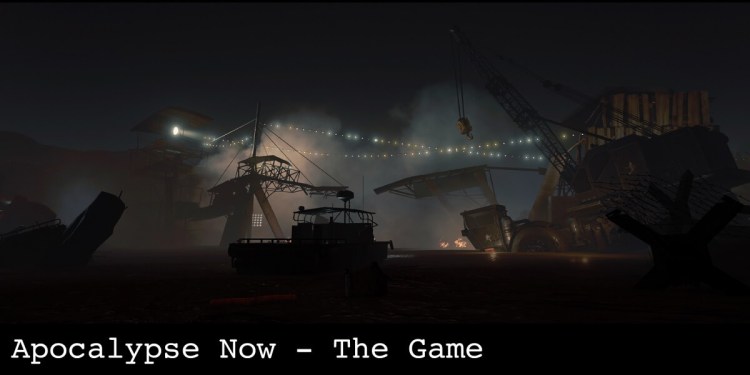I wrote part of my college thesis in English on Apocalypse Now, the epic Vietnam War film by Francis Ford Coppola. I consider it one of the best films ever made, and I’ve encountered a few other Apocalypse Now geeks over the years. So imagine my surprise when American Zoetrope announced this week that Coppola had finally decided to allow a video game based on the motion picture, 38 years after the movie came out.
Lawrence Liberty, a video game veteran, is the executive producer of the game and one of a handful of Apocalypse Now enthusiasts who went on a journey up the river to keep this game alive. Coppola felt that the storytelling in games had progressed to the point where a game could do the subject justice, and he wanted to keep the title as an independent effort.
So the team launched a Kickstarter crowdfunding campaign to raise $900,000 for the project. It’s not a slam dunk, as Liberty has to keep Coppola happy and give fans what they want as well. He envisions the title as a narrative story that follows the movie, but it will be a horror role-playing game, rather than a Call of Duty style shooter.
I talked to Liberty about the plans to make the game for 2018, the 40th anniversary of the movie. Here’s an edited transcript of our conversation.
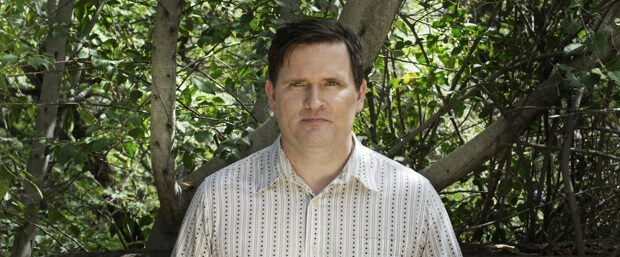
Above: Lawrence Liberty, executive producer of Apocalypse Now, the game.
GamesBeat: Where is your game studio located? Are you in Los Angeles?
Lawrence Liberty: Right now, it’s being run out of the parent office in Hollywood, even though we’re technically a separate company.
GamesBeat: How did it all get started?
Liberty: My involvement goes back to 2010. Rob, one of the partners on the game side, was contacted by someone at American Zoetrope in 2008 or 2009 about this idea. They wanted to learn about the game space. It slowly turned into something back in 2010. Monty [Markland], another one of the guys involved on the project, and I had our own game studio. We made our first early prototype back then, using the CryEngine to do a rough prototype. After 2011, it went into stasis.
I rejoined the effort in early 2015, but Monty had started putting things together again back in 2013 and 2014. It’s been a long, you could say, labor of love to get it to this point.
GamesBeat: Were you interested in doing something with Apocalypse Now in particular?
Liberty: Rob [Auten] and Monty, two of the three of us, were major Apocalypse Now fans. I’m certainly a Coppola fan, and Apocalypse is in my top 10 movies of all time. I liken it to a dark Wizard of Oz. I always thought we could do some interesting things in the game space with it so long as we were given the freedom to do something interesting with it. Not just make a Call of Duty in Vietnam.
Young people may not really know the movie, but it’s still had an impact on popular culture. I don’t know many people in America who haven’t heard lines like “terminate with extreme prejudice” or “I love the smell of napalm in the morning.” We grabbed a website personally, Monty and I, “napalmAM.com,” just because we loved that term. We might do something with that at some point. But yeah, I do think it will resonate with people, even if they don’t understand fully why.

Above: Apocalypse Now will be a horror role-playing game.
GamesBeat: You’re doing a horror RPG. How did you come to that concept?
Liberty: It seemed to be the best way, at first, to approach the adaptation. My background is in RPGs. I was the executive producer on Fallout: New Vegas. To me, a lot of the logistical challenges of making this work are similar. We have a large geographic area. We have to figure out how to develop a progression system and a path for Willard’s odyssey. Making that work in terms of world building and content creation, I felt like it was a similar challenge. I enjoy those types of games.
Really, what interests me is figuring out how to develop a game and game systems that feel good, feel natural, and will have to be more artful and subtle — not big, obvious HUD elements indicating things like health and enemy location. That’s something I’m looking forward to. We’ll be getting early versions out there, getting feedback from players. Hopefully, together, we can make something that we can all be proud of that and that the Coppolas will feel comfortable with. This is their baby, the crown jewel. Nothing has been done with this. We have to be extremely respectful going into this.
GamesBeat: Is that why you’re doing the Kickstarter, to get that kind of feedback?
Liberty: Exactly.
GamesBeat: When you’re talking with Coppola, how do some of those conversations go? I see his quote there, that he’s seen video games grow up.
Liberty: I think he believes we’re at a point in both the evolution of the craft of game making and the development of the technology needed to make this — we’ve reached a point where we can tackle this. Particularly, if we have an extended development cycle. This is a game that I wouldn’t want to rush.
I mentioned Fallout before. That was a case where we essentially had 16 months to make a 200-hour RPG. We had a hard marketing date that we needed to hit. I’d like to think we did a good job. I know the game was buggy, but it was still beloved. I don’t want to do that here. I don’t think we can afford to that with this game. I’d rather take our time and iterate and involve the community. That’s one thing I’m most looking forward to. We’re developing our own website to be the official information source for the game and its development, but it’s also going to be a platform for us to collect and generate actionable data from the people backing our game.

Above: Art from the Apocalypse Now game.
GamesBeat: What’s the status of the studio? Have you put many people together yet?
Liberty: We have a small core. It’s very much a skeleton crew. There’s a working prototype we’ve put together. We switched engines. Currently, we’re using Unreal, which is almost certainly what we would use for production. We have a couple of key people, and we’re in talks with others to build out the team. But for now, it’s just that kernel. That’s part of the reason why we’re going to launch the Kickstarter and see if people agree that this is something worth backing.
GamesBeat: Did you consider pitching it to one of the big game publishers?
Liberty: Years back, I know Rob helped them approach some of the larger publishers. I think Francis didn’t have the best experience with another game property. He didn’t like what was coming back in terms of concepts. He wanted more control, which I totally understand.
We’re an independent game endeavor now. We have what we think is a very good concept to start with, but ultimately, we’re beholden to American Zoetrope. We’ll treat them as the hand of the publisher, essentially, helping us adhere to their vision and their aesthetic standards.
GamesBeat: The art style does look very realistic. Is that how you’d describe it?
Liberty: Yeah, it’s reasonably realistic now. Over time, I think we’d work to increase the fidelity and be even truer to the film. That doesn’t necessarily mean we’d add things like film grain effects or anything like that. But I want to explore skin shaders. I think, in particular, rigging and skeletal systems and using animation to convey subtle mood and AI behavior changes in non-player characters is going to be very important for this game. For us to be able to do it with little or no traditional HUD and other traditional game features, we’re going to have to have very good animation.
GamesBeat: Some people are inevitably going to ask how much combat is going to happen in this game. There’s an audience that still wants to just play Call of Duty.
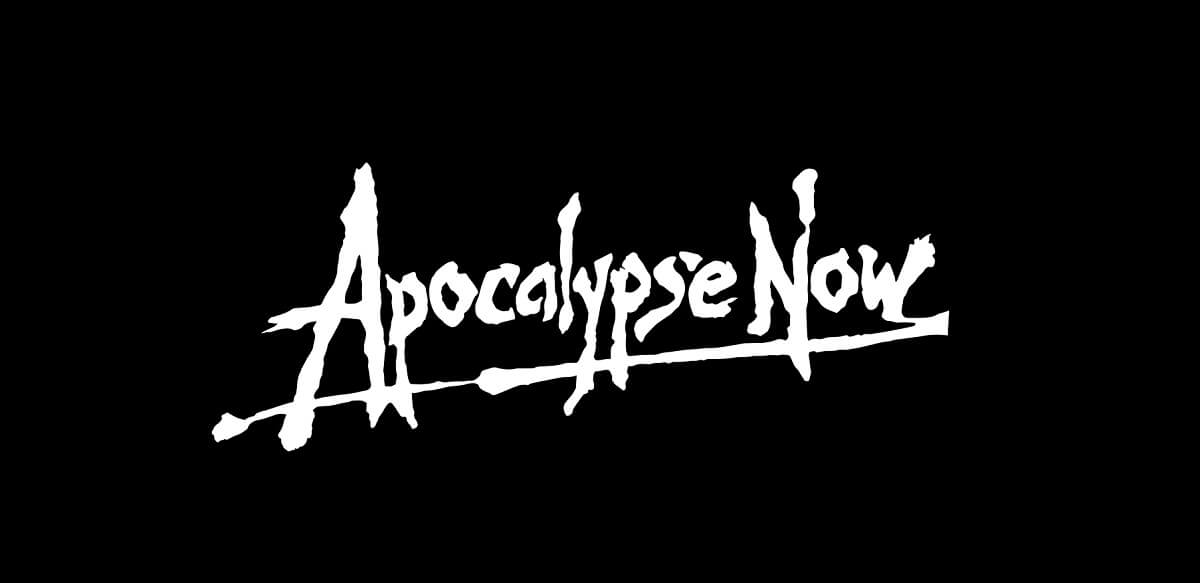
Above: Apocalypse Now is Francis Ford Coppola’s epic war film from 1979.
Liberty: I don’t think it will be anything like a Call of Duty game. That we can control just by the amount of machines that work in the world and how lethal the world is. I don’t necessarily think it’ll be like Resident Evil 7, where you feel like you’re under constant threat of death, but we envision it as an immersive first-person experience. Resources will be limited. Things like food, water, sleep, those could very well play a part in how effective you are. Tactics and player skill are going to be important.
Again, this is something I really want to bring forward to players and set up a system that allows us to perfect the game over time. I want to make sure we’re doing it the right way. But my vision currently is that it’s going to be somewhere between — maybe a little closer to Resident Evil 7 in terms of gameplay, resource scarcity, ammunition scarcity, weapon scarcity, that sort of thing. Vietnam in 1969 was a very dangerous place, particular as you got away from American encampments. It should feel uncomfortable pretty much all the time. To be true to the film, it can’t be a run-and-gun game anywhere.
We will have one of the best FPS designers and architects working on this. It has to feel like a very precise shooter — but if you played a really good shooter that has fewer bullets and a different damage model. You can’t just go in thinking, “oh, it’s just a flesh wound.” That probably doesn’t make sense here.
Do you remember Bushido Blade on the PlayStation? It was published by Square, and it was very dramatic for the time. It was the first fighting game where you basically had the potential to do one-hit kills. The fight could be over in a second of engagement. People liked it. It was rather niche, so I’m not saying we’d go to that extreme, but I do think greater lethality and being more cautious and prudent in your approach to overcoming challenges is going to be the order of the day in Apocalypse.
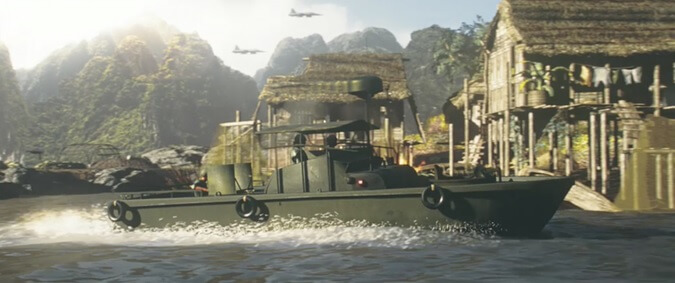
Above: The river patrol boat from Apocalypse Now
GamesBeat: The movie had a very strong narrative. Is the game going to follow that or do something different?
Liberty: This is something that will depend on our ultimate budget. We should have a fairly strong narrative component. There’s going to be a critical path, and along the way — again, depending on scale — there will be side content, a great deal of which may be procedural. We may have a procedural [jungle] with variability in terms of enemy encampments. That could mean you’d come across random encounters that vary from playthrough to playthrough. You might see a small VC patrol escorting a captured American POW, and you can choose to engage or not. We want a lot of player choice and player impact on the story.
I think setting up procedural systems is going to be the foundation on which we build. But we will have a narrative spine. The fidelity of that narrative element depends on scope. I’m comfortable scoping based on my RPG experience. I have a pretty good idea of what it costs to do a few thousand lines of voice-over as opposed to tens of thousands of lines. Scope and cost definitely scale.
GamesBeat: You could still get Martin Sheen.
Liberty: He’s around. I still love his voice. I don’t know that he’d want to. That’s not something we’re throwing in as a stretch goal [laughs]. Maybe we’d approach him in some way. I don’t know if he’d want to reprise the role of Willard. His voice has changed. I’d love to have his involvement, but something tells me he doesn’t come cheap.
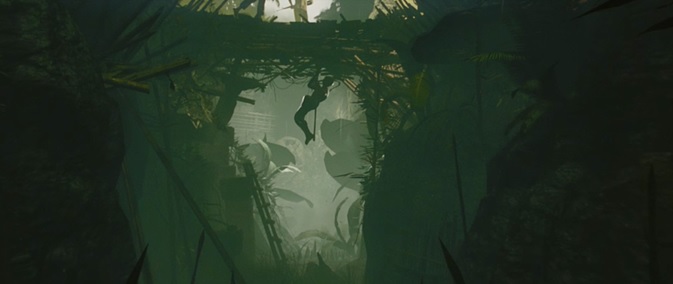
Above: Apocalypse Now the game will come out in 2020.
GamesBeat: Have there been games in the genre or in the setting that you’ve thought were interesting to compare?
Liberty: There have been a few tabletop games. There was a Neo Geo game I remember enjoying. But in terms of immersion — I don’t have any that have done what we hope to do. Not quite yet. You could argue that there have been elements in Metal Gear that touched on aspects of the time period but not really. That’s such a different and strange universe in comparison to Apocalypse.
GamesBeat: Do you know what parts of the movie you hope to recreate?
Liberty: Ideally, pretty much all of the set pieces will be there. You could argue that Saigon could be very limited because it’s just a starting point for the narrative elements. But ideally, we get to do them all.
GamesBeat: Including the helicopter assault?
Liberty: Yeah. Again, all of that is scalable and very much budget-dependent. Whether or not we want people to be [Captain Benjamin] Willard [the main character, played by Martin Sheen in the film]as a helicopter gunner, or — in a pipe dream where we’re unbelievably successful — we could add surfing. There are lots of things that would be true to the movie that would be fun to have, even if I don’t think we need to have them.
We’ll certainly prioritize the core experience. It has to be a solid FPS. We have to have great procedural systems. We’ll need a narrative layer. We’ll figure out exactly how we want to improve the existing tool set. We’ve already identified areas where we need to improve the dialogue editor, just for a minimal narrative.
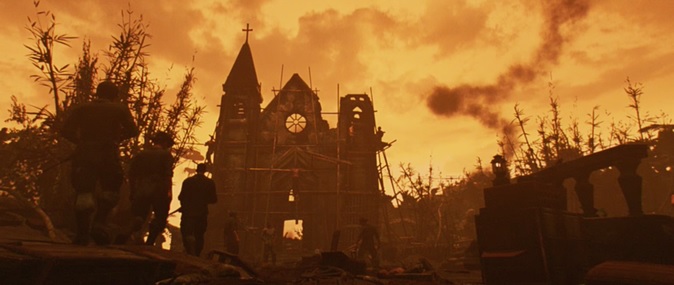
Above: The church scene in Apocalypse Now brought forth a lot of apocalyptic religious imagery.
GamesBeat: You might want to set people straight on what the ending is all about.
Liberty: The beauty of this is that your ending is going to be different, most likely. It could be very different. If we do it right, we want people to be able to — to give them tremendous freedom. This is something we’ve talked about. If at all possible, I’d love for you to be able to be entirely pacifistic or a complete reprobate. Maybe you want to go around and kill everything. That’s going to be harder to pull off in the world if we still want this world to make sense, but it was an interesting design challenge on New Vegas. There are ways of doing it. But it’s going to be harder in Apocalypse.
GamesBeat: The Kickstarter launches tomorrow?
Liberty: That’s the plan. I’m very curious myself to see how the world reacts to this. There’s no precedent for it. It could be huge. It could be anywhere on the map. We won’t know until we do it.
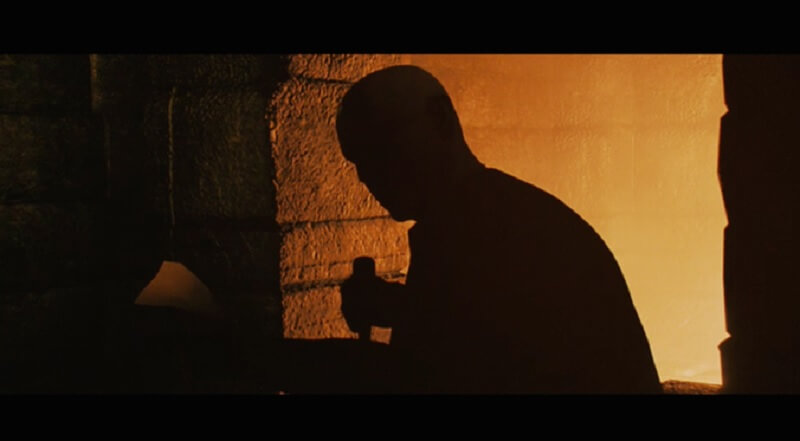
Above: Scene from the Apocalypse Now video game. The Horror. The Horror.
VentureBeat's mission is to be a digital town square for technical decision-makers to gain knowledge about transformative enterprise technology and transact. Learn More
